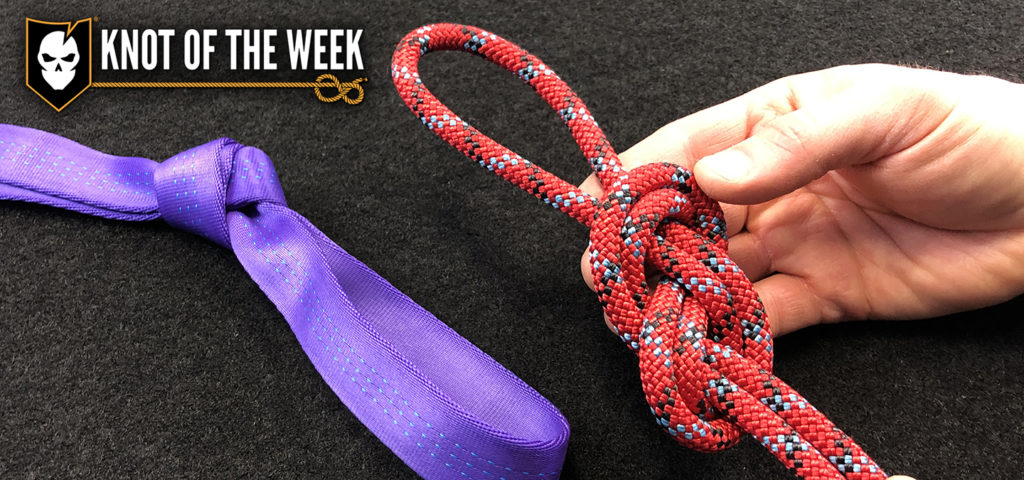The Figure Eight knot is a favorite of climbers everywhere. This week we’re demonstrating both the Figure Eight on a Bight and the Threaded Figure Eight. Though they appear to be the same knot, as you’ll see in the video your tie in point will determine which method you need to use to get the knot tied.
Figure Eight On a Bight » Bends
(Strength: 4/Security: 4/Stability: 3/Difficulty: 1) See below for what these ratings mean.
The Figure Eight On a Bight is ideal for tying into any point along a line to act as an anchor point. If it’s tied in the end of a rope you should always back it up. While this can be tied in the end of a rope, there’s a safety risk if clipping this into a harness via a carabiner during a Lead Climbing situation.
A carabiner can become cross-loaded in a fall and become twisted, producing a weak link. The shock can be caught by the gate of the carabiner, which carries a reduced strength. The kN (Kilo Newton) rating of a carabiner only holds true if the carabiner is loaded appropriately.
To avoid this issue and others associated with introducing a carabiner into the mix, use the Threaded Figure-Eight to tie directly into a harness. The Threaded Figure-Eight is also known as a Figure-Eight Follow-Through.
Ratings
Strength/Security/Stability/Difficulty
Each knot will be assigned a rating from 1-5 (1 representing the lowest score) based on the following four properties:
Strength – All knots will weaken the strength of a rope, however, there are knots that are stronger than others. The scale here will reflect how strong the rope remains with the specified knot.
Security – The security scale refers to how well the knot will stay tied, and resist coming loose under a normal load.
Stability – Stability refers to how easily the knot will come untied under an abnormal load (i.e. the knot being pulled in a direction it was not intended to) A lower score here represents instability.
Difficulty – The lower the number, the easier a knot is to tie.

